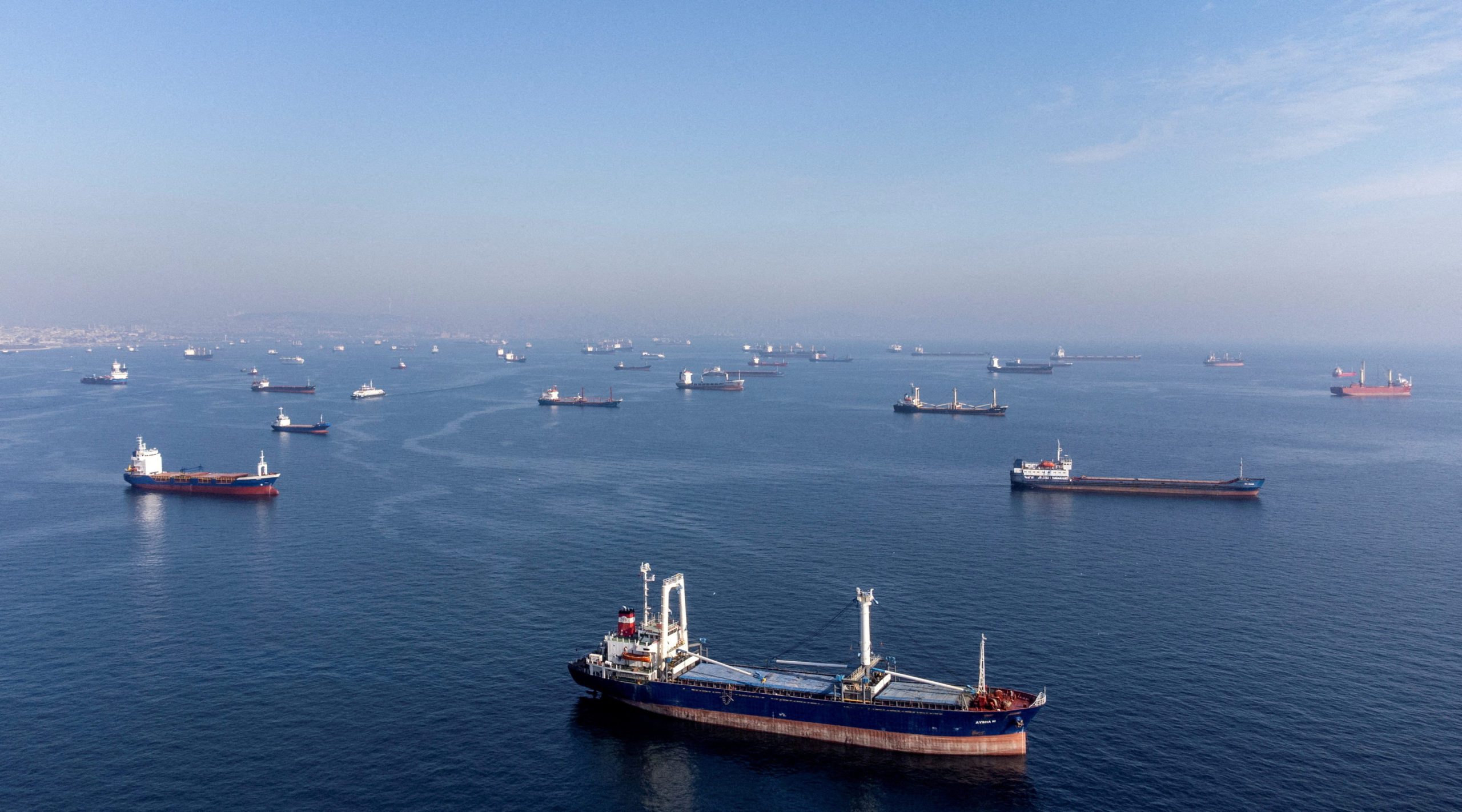By Rowena Edwards, Angeliki Koutantou and Ahmad Ghaddar
LONDON/ATHENS, May 18 (Reuters) – Russian fuel oil arrivals offshore Greece jumped to record levels in April, as sanctions on Moscow drive traders to find new ways to export Russian oil via ship-to-ship (STS) loadings, Refinitiv Eikon data showed and sources said.
Trading Russian crude and oil products remains legal for now as the European Union is yet to fully agree on a proposed embargo, but banking and other financial sanctions on Russia following its invasion of Ukraine on Feb. 24 has made it increasingly more difficult to do so.
In April, shipments of Russian fuel oil with Greece as a destination reached nearly 0.9 million tonnes, about double March levels and could reach new records in May, according to Refinitiv data.
The bulk of this was shipped from Russian ports to Greece’s Kalamata port, the data showed.
The Greek energy ministry declined to comment on what it said was private companies’ business.
Traders said the fuel oil – a by-product of refining crude oil into lighter, cleaner products like auto fuels – is being stored and blended offshore on board tankers and being loaded via ship-to-ship transfer for re-export.
While it is not uncommon for fuel oil to load offshore Greece for exports to other destinations, the level of activity was very high compared to normal April levels, one industry source said.
The Evridiki tanker, which has the capacity to load 130,000 tonnes, loaded a Russian fuel oil cargo in mid April off Kalamata, two shipping source said.
The tanker then made its way to the United Arab Emirates oil hub of Fjairah, Refinitiv data shows. Russia has been increasing fuel exports to the hub, with arrivals set to jump to about 2.5 million barrels according to data from oil analytics firm Vortexa.
Another tanker, Okeanos, with the same capacity, loaded fuel oil via STS off Kalamata earlier this month and is currently heading to India, the data shows.
The Kriti King, which loaded a 130,000 tonne fuel oil cargo offshore Kalamata in early May, is currently heading to China, according to Refinitiv data.
Shipping sources told Reuters that Russian oil sellers have restored STS operations in Rotterdam and near Spain’s Ceuta, after EU sanctions and activist protests derailed such operations in Denmark.
Moscow calls its invasion of Ukraine a “special military operation” to rid the country of fascists, an assertion Kyiv and its allies say is a baseless pretext for an unprovoked war.
Fuel oil is used as a shipping fuel, in power generation, or as feedstock for some refining units which upgrade it into other fuels.
(Writing by Ahmad Ghaddar; Editing by Emelia Sithole-Matarise)
(c) Copyright Thomson Reuters 2022.

 Join The Club
Join The Club












